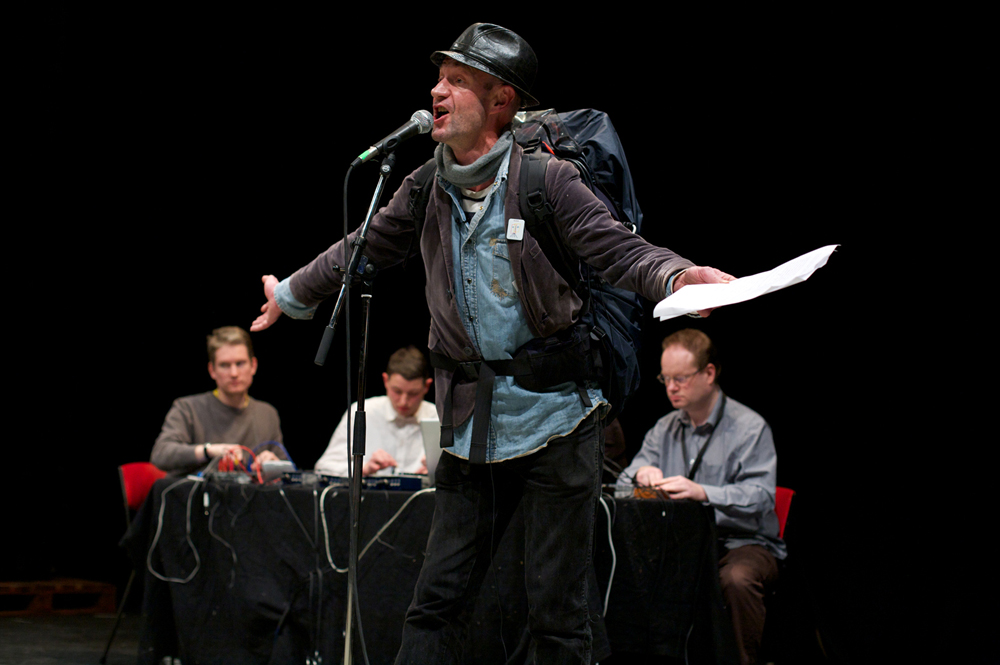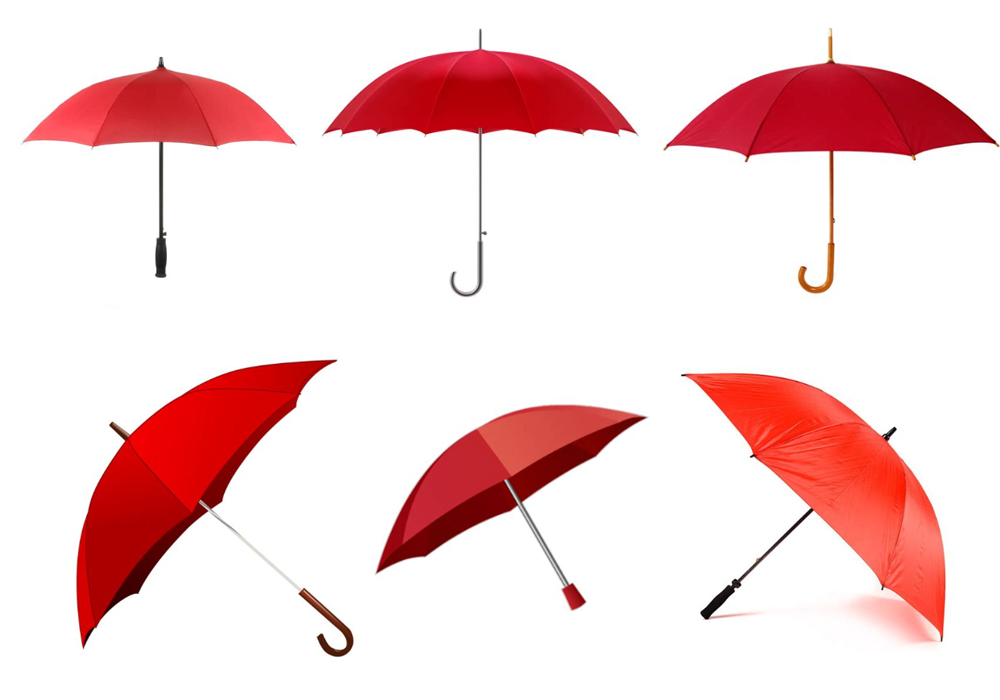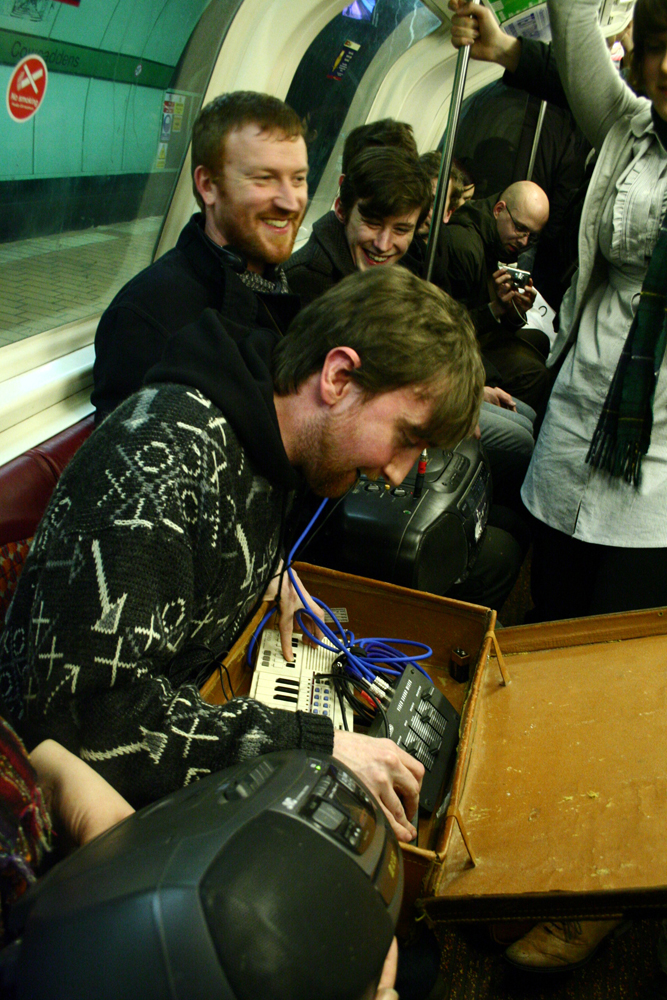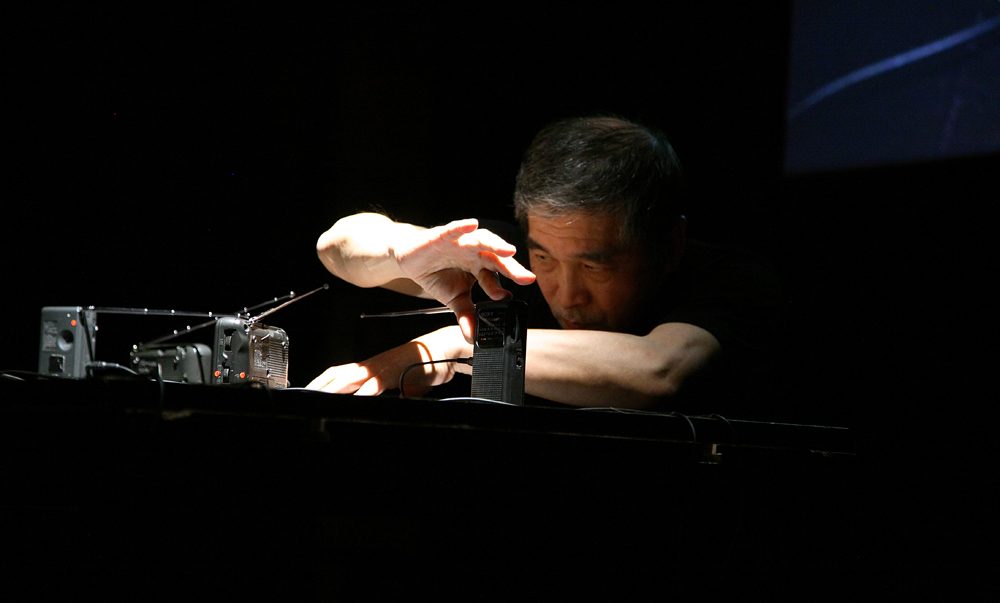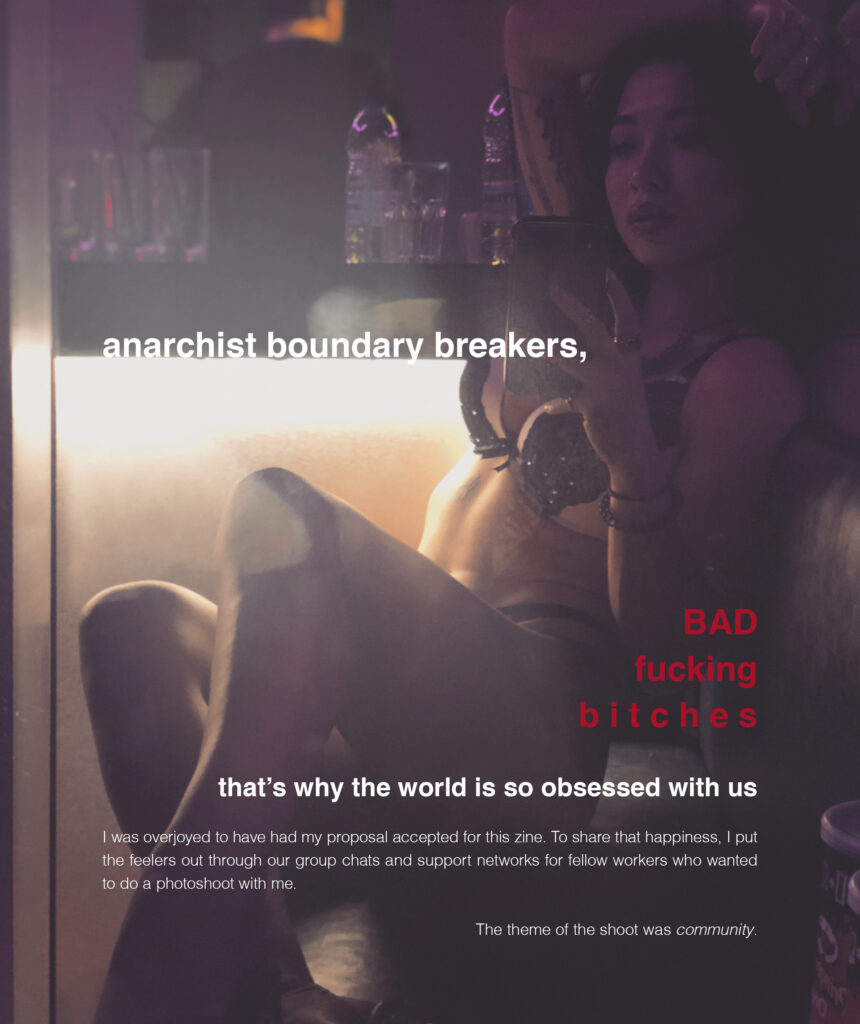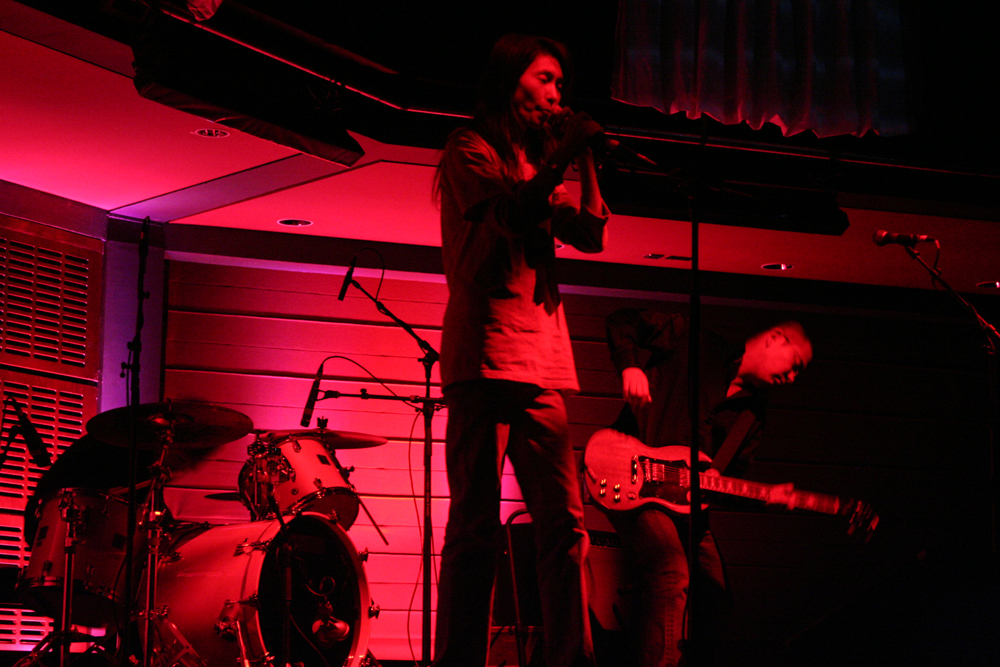
Junko, Ikuro Takahashi & JO JO Hiroshige
Ikuro Takahashi JO JO Hiroshige Junko
Three iconic figures from the Japanese underground assembled as a trio to stand in for the advertised duo of Junko and Jerome Noetinger who was unable to attend the festival due to illness.



